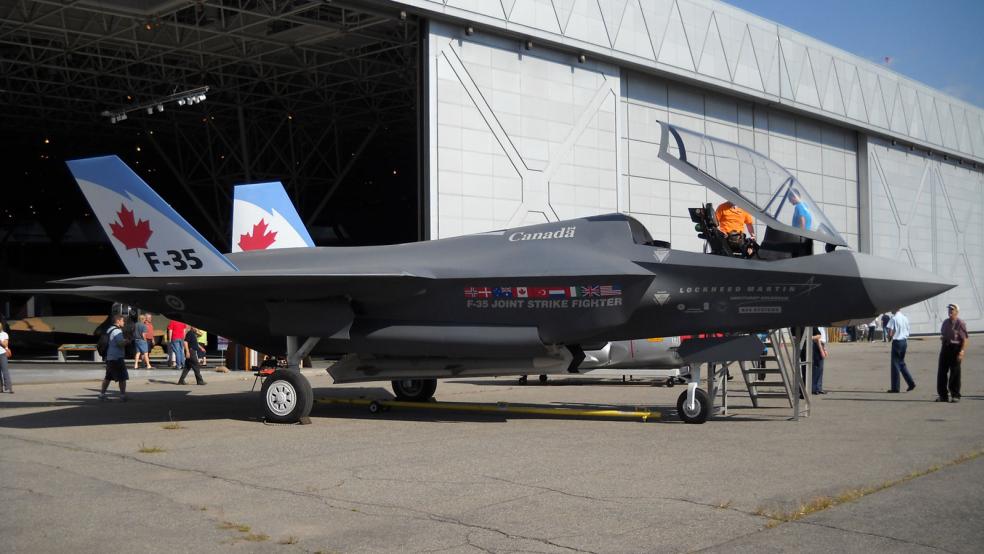When it comes to the future of its involvement with the multibillion dollar F-35 Joint Strike Fighter program, Canada’s new government seems to want it both ways: remaining a partner in the costly effort but not fully committing to its future, either.
In October, Canada overwhelming elected the Liberal Party and its leader, Justin Trudeau, as prime minister. Trudeau vowed to kill Ottawa’s longstanding plan to buy 65 fighters for roughly $9 billion and find a cheaper aircraft to replace the country’s CF-18 Hornet fleet, rather than spend anywhere from $16 billion to $49 billion over the F-35 fleet’s projected lifetime.
Related: How the Liberal’s Win in Canada Could Hurt the F-35
Pentagon officials, left wondering about Trudeau’s intentions, received a tentative answer last week: Canada will stand by its pledge to invest $150 million in the F-35 effort’s development but will also hold a new fighter competition to examine alternatives.
"I think they're going to have another full and open competition. I think the F-35 will be part of that but the requirements from the competition may change. We don't know," Deputy Defense Secretary Bob Work told reporters traveling with him back the Halifax International Security Forum, according to Reuters.
On Friday, Canadian Defense Minister Harjit Sajjan told the news service it would be “premature" to talk about the F-35 or any aircraft that might supplant the CF-18.
He said he was “focused on the requirements that we need.”
Related: Yet Another Costly F-35 Glitch That Won’t Be Fixed Any Time Soon
The comments by Sajjan and Work indicate there’s a new understanding of what it could mean if Ottawa backed out of the F-35 program completely.
In 2002, Canada joined the nine-nation partnership developing the fifth-generation fighter jet. Some development work and parts for the jet are being produced in Canada, worth roughly $600 million, and losing out on those contracts would be a blow to the Canadian economy.
If Canada or any of the nine partner countries developing the F-35 pulled out of the effort, about $1 million would be added to the price tag for each fighter jet, Air Force Lt. Gen. Christopher Bogdan, the head of the aircraft’s program office, told Congress last month.
The U.S. alone wants to purchase 2,440 F-35s over the coming years, meaning billions could be added to the program’s long-term $1 trillion cost and force the Pentagon to cut its total purchase, a decision that could negatively impact relations between the countries and have a ripple effect with the seven other partner nations.
The Pentagon has spent around $400 billion to develop the F-35, making it the most expensive weapons effort in U.S. history.
Related: Here’s Why 'President Trump' Might Dump the F-35
For now, Canada is sticking with its commitment. Ottawa is scheduled to participate in a meeting of the effort’s executive steering board in Italy next month, according to a spokesman for the Pentagon’s F-35 joint program office.





